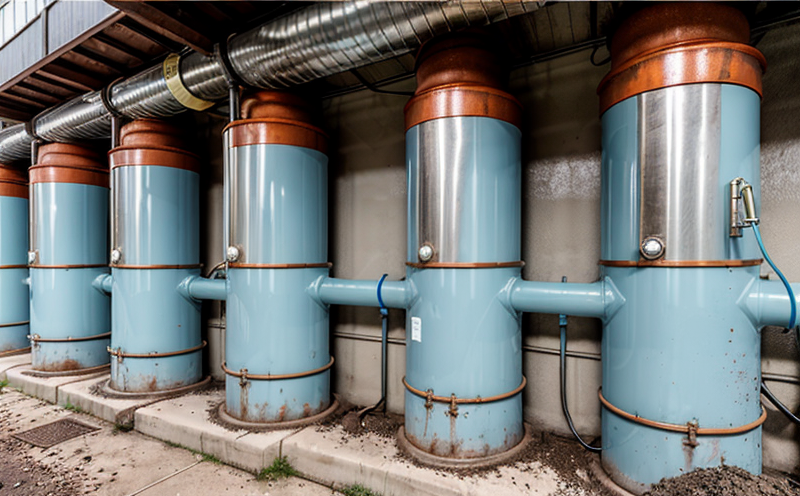ASTM G212 Corrosion Inhibitor Screening Test in Water
The ASTM G212 corrosion inhibitor screening test is a critical procedure used to evaluate the effectiveness of chemical compounds designed to protect metal surfaces from degradation due to waterborne corrosive agents. This standardized method plays an essential role in quality assurance, particularly for industries dealing with water systems, including power generation facilities, industrial plants, and municipalities.
The test protocol involves exposing metallic specimens to a simulated water environment that mimics the conditions found in various applications. By subjecting these materials to controlled exposure under specific parameters outlined by ASTM G212, we can assess how well corrosion inhibitors perform in real-world scenarios. This testing is vital for ensuring product reliability and compliance with regulatory standards.
The process begins with careful selection of the test specimens and preparation according to specified guidelines from ASTM. These materials are then immersed in a solution designed to replicate water conditions, including temperature, salinity, and pH levels relevant to each application area. Once prepared, the samples undergo continuous exposure to the corrosive environment for an extended period.
Throughout this duration, precise measurements are taken using advanced analytical instruments like potentiostats and coulometers. These tools allow us to monitor changes in surface potential and current density, which provide direct evidence of corrosion activity. After completion of the test cycle, thorough inspections are conducted on all tested specimens to determine any visible signs of pitting or general material degradation.
Based on these observations, detailed reports are generated summarizing both positive results indicating effective inhibition performance as well as areas requiring further improvement. Compliance with industry standards such as ASTM G212 ensures confidence in the efficacy and safety of products being evaluated while meeting regulatory requirements set forth by agencies like EPA or OSHA.
- Provides objective data for selecting optimal corrosion inhibitors
- Aids in product development by identifying effective formulations early on
- Supports compliance with relevant environmental regulations
- Enhances reputation through consistent quality assurance practices
Benefits
The benefits of conducting ASTM G212 corrosion inhibitor screening tests extend beyond mere compliance; they offer significant advantages for businesses operating within the water and wastewater sectors. Quality managers can rely on this testing to ensure that their products meet or exceed industry expectations, thereby enhancing overall product reliability.
For compliance officers, these tests serve as valuable tools in maintaining adherence to stringent regulatory requirements, thus minimizing risks associated with non-compliance penalties. Additionally, R&D engineers benefit from the insights gained into effective corrosion protection strategies which can lead to innovation and competitive advantages.
Incorporating ASTM G212 into procurement processes helps companies source high-quality materials confidently, knowing that suppliers have undergone rigorous testing procedures. This approach not only reduces costs linked to potential failures but also fosters long-term partnerships based on trust and reliability.
Quality and Reliability Assurance
The ASTM G212 test ensures that corrosion inhibitors meet stringent quality standards, providing a reliable means of assessing their performance under simulated water conditions. By adhering to this protocol, laboratories demonstrate commitment to excellence in testing practices.
This commitment translates into consistent and accurate results across multiple batches or iterations of the same product formulation. Such reliability is crucial for maintaining trust among stakeholders who depend on the integrity of these products.
The use of state-of-the-art equipment and experienced personnel further enhances the accuracy and precision of ASTM G212 testing. Regular calibration and validation of instruments ensure that measurements remain within acceptable tolerances, contributing to the overall reliability of reported findings.





